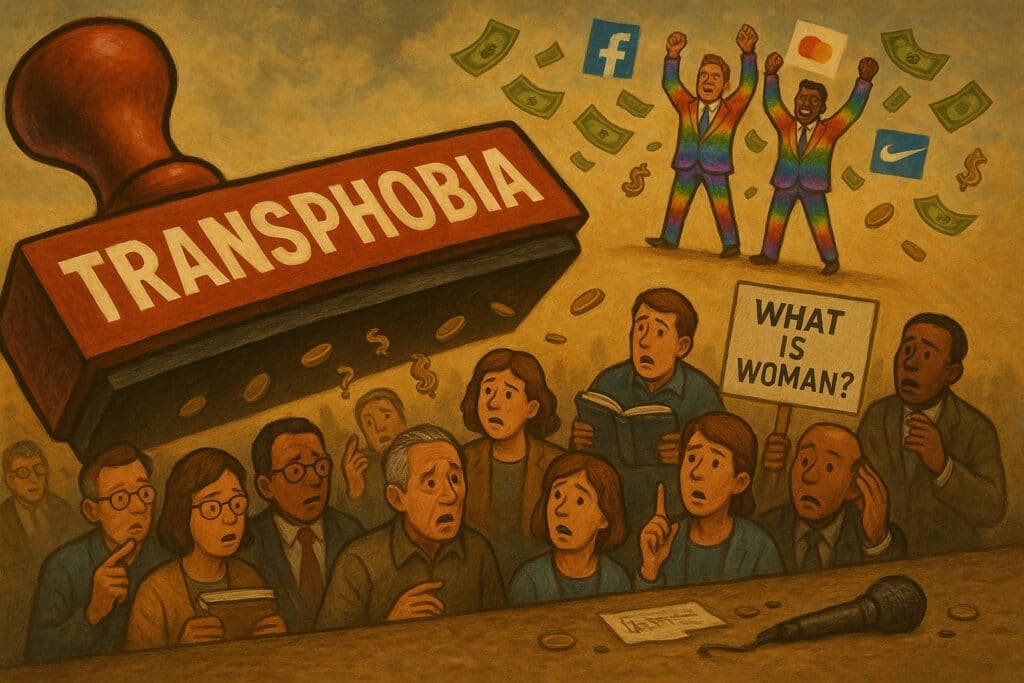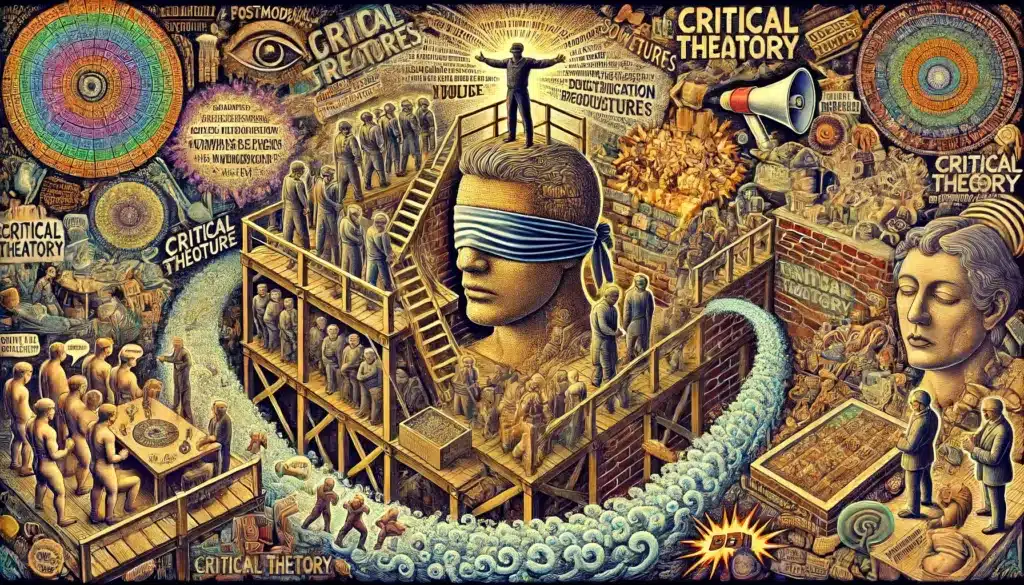Transphobia: The Word That Means Whatever Activists Want It To Mean
If you’ve lived through the past decade, you’ve probably noticed that “transphobia” has become one of the most powerful words in public life. It’s an accusation that ends arguments, destroys reputations, and transforms ordinary disagreements into moral crimes. But what does it actually mean? Spoiler: whatever activists want it to mean in the moment.
Transphobia is the catch-all accusation of modern identity politics—used to silence debate, enforce conformity, and label anyone questioning gender ideology as hateful.
Let’s cut through the rainbow smoke and mirrors.
Table of contents
- Transphobia: The Word That Means Whatever Activists Want It To Mean
- The Elastic Definition of Transphobia
- Transphobia as a Political Weapon
- Transphobia and Cancel Culture
- The Money Behind Transphobia
- Transphobia and the Death of Free Speech
- Everyday People vs. the Label
- The Irony of Transphobia Accusations
- Transphobia and the Culture War Economy
- So, What Should We Do?
- Conclusion: The Fear Industry
The Elastic Definition of Transphobia
At face value, phobia implies fear—arachnophobia, claustrophobia, etc. By that logic, transphobia should mean an irrational fear of transgender people. But in practice, the term has been inflated to cover a buffet of sins: disagreement with gender ideology, questioning medical transitions for children, using the “wrong” pronoun, or even raising an eyebrow at a drag queen story hour.
In short, transphobia doesn’t describe behavior—it polices thought.
Transphobia as a Political Weapon
The reason “transphobia” is so effective isn’t because society is overrun with raging bigots. It’s because the term is designed as a political tool. Instead of debating facts, activists declare disagreement to be hate. Once you’re branded transphobic, no one has to listen to your arguments.
You could be a parent worried about your child being put on puberty blockers.
You could be a feminist questioning whether women’s sports should stay women-only.
You could even be a doctor pointing out medical side effects.
It doesn’t matter. The label “transphobic” reduces you to a villain. And villains don’t deserve dialogue.
Transphobia and Cancel Culture
The accusation of transphobia has become the Swiss Army knife of cancel culture. Politicians, comedians, authors, professors—many have found themselves tarred with the word. J.K. Rowling is the most famous example. She dared to suggest that women exist as a biological category, and for that crime, she was branded the Queen of Transphobia.
Notice the genius of this tactic: the mere act of asking a question becomes proof of guilt. If you’re defensive, it’s because you’re guilty. If you stay quiet, it’s silent complicity. Heads they win, tails you lose.
The Money Behind Transphobia
Let’s not forget: outrage is profitable. Entire NGOs, activist groups, and DEI (Diversity, Equity, Inclusion) consultants make a living out of policing “transphobia.” For them, the scarier the monster, the bigger the budget. So of course, the definition must always expand.
If “transphobia” was just physical violence against trans people, there wouldn’t be enough incidents to fund endless workshops, university programs, and corporate trainings. So the word has to stretch, covering microaggressions, language slips, and even silence.
Your workplace seminar needs villains to justify its existence. That’s where you come in.
Transphobia and the Death of Free Speech
What’s truly sinister about the inflation of transphobia is how it strangles free speech. You can’t have an honest conversation about gender if one side risks being socially executed. When fear rules, debate dies.
Imagine trying to discuss climate change while being accused of “climatephobia” if you disagreed on tactics. Or trying to talk about economics while being labeled “capitalism-phobic.” It’s absurd, but in the realm of gender, this absurdity is our daily reality.
The result? Institutions cave. Politicians avoid the topic. Teachers muzzle themselves. Doctors nod along rather than risk their careers. The marketplace of ideas has been replaced by a single loudspeaker.
Everyday People vs. the Label
Most ordinary people aren’t frothing with hatred toward transgender individuals. They’re just confused. They grew up in a world where men were men, women were women, and “gender” wasn’t a multiple-choice test. Now they’re told biology is irrelevant, pronouns are infinite, and their kids might need blockers.
When they hesitate, they’re called transphobic.
In other words, average people are punished not for cruelty but for failing to instantly adopt a new ideology. What once was common sense is now bigotry. It’s like telling someone they’re racist for not knowing the latest academic term in critical race theory. The bar keeps moving, and if you trip, you’re branded.
The Irony of Transphobia Accusations
Here’s the kicker: the constant cry of “transphobia” may actually fuel the very hostility activists claim to fight. When people are bullied into silence, resentment grows underground. When every conversation feels like a linguistic minefield, more people simply walk away from the discussion entirely.
Ironically, by diluting the word, activists weaken it. If everything is transphobic, then nothing really is. Real discrimination—when it happens—gets lost in the noise.
Transphobia and the Culture War Economy
Ultimately, “transphobia” is less about protecting people and more about winning the culture war. It’s a branding exercise. If you’re with the activists, you’re on the side of love, progress, and inclusion. If you’re skeptical, you’re a hateful bigot.
It’s a Manichaean worldview designed for social media virality. Nuance doesn’t trend. Cynically, both sides cash in: activists get donations, politicians get votes, and corporations slap a rainbow on their logo to sell more products.
So, What Should We Do?
The real solution isn’t to ignore the struggles of transgender people. It’s to reclaim language from the activists who weaponise it. Words should mean something concrete, not whatever fits today’s narrative.
“Transphobia” should mean hostility or discrimination toward trans people, not disagreement with radical ideology. Until that distinction is restored, the word will continue to poison debate, not advance it.
Conclusion: The Fear Industry
Transphobia is no longer about fear. It’s about control. It’s a linguistic cudgel designed to keep society in line, to silence questions, and to turn average people into villains overnight.
And here’s the most cynical truth of all: if activists ever actually defeated “transphobia,” they’d lose their jobs. So expect the word to stick around—elastic, ever-expanding, and always ready to shut you up.


